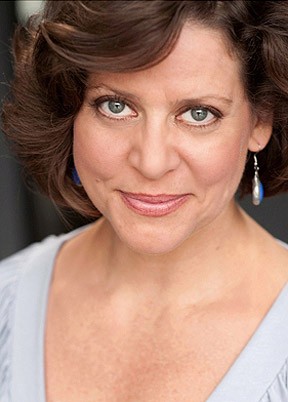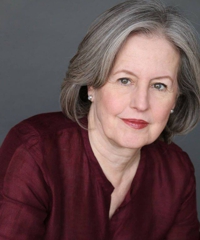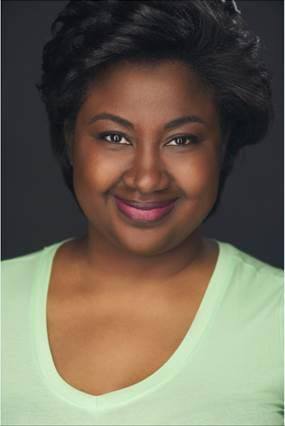With the present state of the COVID 19 pandemic, while we are safe-at-home, one of the things actors can do… is read plays!
Reading plays is a fundamental skill for the actor. I spoke with Acting Studio Chicago Faculty Member Adrianne Cury and she advised,

“There is something we can do with all this time; that is to further educate ourselves.”
As an actor and playwright in training, I asked Adrianne which plays she suggests that every actor read? Her first two suggestions were A Raisin in the Sun by Lorraine Hansberry, as well as Clybourne Park by Bruce Norris. Hansberry’s classic play and some of the other plays Cury recommends to read are discussed in the ASC acting training video, Plays/Films To Explore & Scene Analysis – Part 1 with Adrianne Cury and can be found in digital format at the Chicago Public Library website or Hoopla Digital, which both require a Chicago Public Library card. Here are a few:
August Osage County by Tracy Letts
Why is it so important that we read full plays?
Reading plays increases an artist’s knowledge of theatre, TV, and film.
Adrianne shares examples, in the video, of plays that were adapted into films, such as Doubt and August Osage County. She shared with me that she directed Mauritius by Theresa Rebeck, who writes for TV and film too. Like Rebeck, Ike Holter, who is listed as a Chicago playwright on ASC’s Playwrights You Should Know, writes for both stage and TV.
“It is the task of any actor to be up to speed on the works and styles of the playwrights whose work you’ll be auditioning for.” – ASC

To be current, sometimes you have to go to the past. I started reading Shakespeare. Shakespeare’s themes can be found in current theatre, TV, and film. He is everywhere, including TV shows like, How to Get Away with Murder where I saw an episode where a baby was left out in the cold. I had an “AHA!” moment because this happens in Shakespeare’s The Winter’s Tale, in which I played Emilia in the adaptation, Best for Winter with Idle Muse Theatre Company.

Adrianne also provided me with a quote from a Chicago Grand Dame, Belinda Bremner, “Shakespeare wrote to the pulse of the human heart. His plays are scores of love and sorrow, triumph and misery. The language is universally human.”
Reading plays narrows your focus on which theatres and directors you want to work with.
In the web article, 12 Secrets Every Actor Should Know, ASC advises, “Performing in theatre is the best way to get casting directors to call you in.”

The League of Chicago Theatres website, Chicago Plays has over 200 member theatres listed. Looking at a theatre’s production history can help with choosing a select few that you would really like to work with. You can take it a step further by reading a play or plays that theatre has produced to see if their work is something you want to be a part of. Something that helped me was the ASC workshop, Navigating the Chicago Theatre Scene with Linda Gillum and Bob Mason. During the workshop, we were asked to create a list of theatres and directors we want to work with to bring our stage aspirations more into focus. It worked for me. I was cast as an understudy This is Only a Test with Broken Nose Theatre directed by Toma Langston, who I had on my list! The production scheduled for May 2020 has been postponed to 2021.
Reading plays assists me in choosing monologue material.
That was not a typo; what helped me, I hope helps you. In my first adult acting classes at ASC, I was sometimes an unprepared student actor. I was the student who looked for monologues online rather than reading an entire play. In one of my beginning acting classes, we were working on monologues. I was asked by the instructor if I had read the play and I had to acknowledge that I hadn’t. I had the excuse of a day job and personal obligations and finding the time to read a play was often a challenge. I learned a great lesson that day.
Reading 8 Tips for Finding Great Monologues by ASC director, Rachael Patterson, was a lifesaver! Ten-minute Plays were my solution to pull monologues from! I found them at the Chicago Public Library including Ten-minute Plays, Volume 6 From Actors Theatre of Louisville. Kurt Naebig, an ASC Faculty Member goes into further detail about monologue selection on the ASC acting training video, Monologue Auditioning with Kurt Naebig which includes some amazing audition tips!
Reading plays lets you know what’s trending

As I mentioned before, there can be quite a bit to keep up with as an actor, so I started small and built my play reading stamina (now I love reading full plays). I grew up in Louisville and started to look more into Actors Theatre of Louisville and I found a treasure trove on their website. I found that some of the plays that were produced at the Humana Festival of New American Plays hosted by Actors Theatre of Louisville were performed in Chicago theatres, such as Cardboard Piano by Hansol Jung and How to Defend Yourself? by Lily Padilla, played at TimeLine Theatre Company and Victory Gardens Theater respectively. Padilla is on The New Play Exchange (NPX), which is the world’s largest digital library of scripts by living writers, you can find samples, drafts, and full plays. Reader subscriptions run from $10.00 to $12.00 annually. The site includes works by some of The Top 20* Most-Produced Playwrights of the 2019-20 Season such as Lauren Gunderson and 2020 Non-Equity Jeff Awards Nominee for New Work, EthiopianAmerica by Sam Kebede. Knowing what’s being produced currently from Shakespeare to original new plays is key to an actor’s preparation.
I am five years into acting, three years taking classes, and two years performing.
As the Books for Actors, states: “Great acting requires curiosity and constant learning.”

Toma Lynn Smith is an ASC alum. As a Chicago-based Non-Equity actor, she has performed in Traitor (A Red Orchid Theatre), Little Match Girl Passion (Facility Theatre), Best for Winter (Idle Muse Theatre Company), and Asherella (Ghostlight Ensemble Theatre). She has written the ten-minute play, swc: shopping while colored, which served as a writing sample for her admittance into playwriting classes with Jackalope Theatre Company and Steep Theatre. She does her best to read a play a week and her recent reads are Topdog/Underdog by Suzan-Lori Parks, In The Next Room (Or The Vibrator Play) by Sarah Ruhl, and Slave Play by Jeremy O. Harris.


